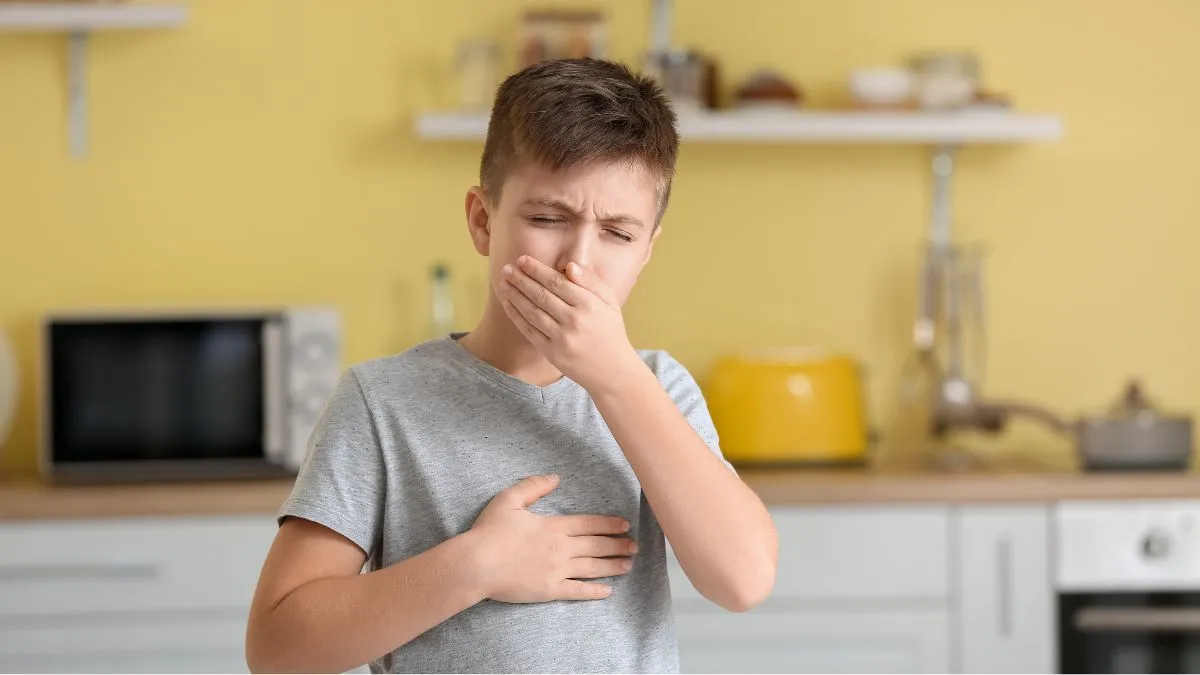- By Priyanka Munshi
- Tue, 22 Oct 2024 06:07 PM (IST)
- Source:JND
It is essential to properly understand viral respiratory problems in children, especially during seasonal changes, and to maintain their health. Several seasonal issues, such as the flu, RSV (respiratory syncytial virus), and the common cold, tend to spread more easily due to fluctuating temperatures and increased indoor gatherings. As the weather gets colder, taking care of your children's immune systems becomes even more important.
It is crucial to recognize symptoms such as coughing, sneezing, difficulty breathing, and fever, as early detection allows for timely medical intervention. Parents and caregivers should prioritize preventive measures like proper hygiene, vaccinations, and ensuring that children stay warm and hydrated. In a conversation with Jagran English, Dr. Atul Palwe, a Consultant Pediatrician and Neonatologist at Motherhood Hospital in Lullanagar, Pune, shared insights on viral respiratory problems among kids during seasonal changes.
According to Dr. Palwe, are your kids frequently exposed to germs at school, playgrounds, and during social activities? Read on to understand the common respiratory illnesses they are more likely to face, and follow these vital steps to protect them.
As seasons change, the prevalence of respiratory illnesses also increases. Colder weather creates ideal conditions for the spread of viruses and bacteria, leading to a surge in cases. Cold, dry air can irritate nasal passages, making them more susceptible to infection. When kids spend more time indoors during colder months, they are more likely to come into contact with others and spread germs. Additionally, reduced sunlight exposure contributes to increased infection rates since sunlight helps kill germs.
Children's immune systems are still developing, which makes them more susceptible to these illnesses. They are frequently exposed to other children, animals, and pollutants at school, in tuition centers, and on playgrounds. The smaller and underdeveloped airway passages increase their chances of experiencing health complications caused by infections. Symptoms may include nose flaring, cold sweats, difficulty breathing, snoring, irregular breathing, decreased appetite, sneezing, fever, cough, stuffy nose, and mood swings. These viruses thrive more in colder months, making it essential to take proactive steps. Parents should prioritize their children's respiratory health to ensure their well-being.
Here are some common viral respiratory illnesses in kids, as explained by Dr. Palwe:
Common Cold: Children are often affected by the common cold, caused by various viruses like rhinoviruses, adenoviruses, and parainfluenza viruses. Symptoms include a runny nose, sore throat, difficulty swallowing, cough, crankiness, and mild fever.
Influenza (Flu): This is a more severe version of the common cold. Children, with their weaker immune systems, are at higher risk of contracting the flu. Symptoms include body aches, chills, fatigue, and a persistent cough. If untreated, the flu can lead to more serious complications like pneumonia. Annual flu vaccinations are recommended for children.
Respiratory Syncytial Virus (RSV): RSV is a significant cause of respiratory infections in infants and young children. It can lead to bronchitis, pneumonia, and other respiratory issues. Symptoms include coughing, wheezing, fever, and difficulty breathing. Premature infants and children with pre-existing health conditions are especially at risk.
Bronchiolitis: This infection affects the airways in the lungs and is commonly caused by RSV. It primarily impacts infants under two years of age. Symptoms include coughing, wheezing, and difficulty breathing. While mild cases of bronchiolitis can be managed at home, severe cases may require hospitalization.
Dr. Palwe emphasizes the importance of taking proactive steps to prevent respiratory illnesses in children. Teach kids the importance of frequent handwashing, especially after being in public places or sneezing, to help build healthy hygiene habits. Keep them home from school or the playground when they are sick or during peak illness seasons. Regularly disinfect toys, beds, and the entire house to minimize the risk of viruses spreading indoors.

